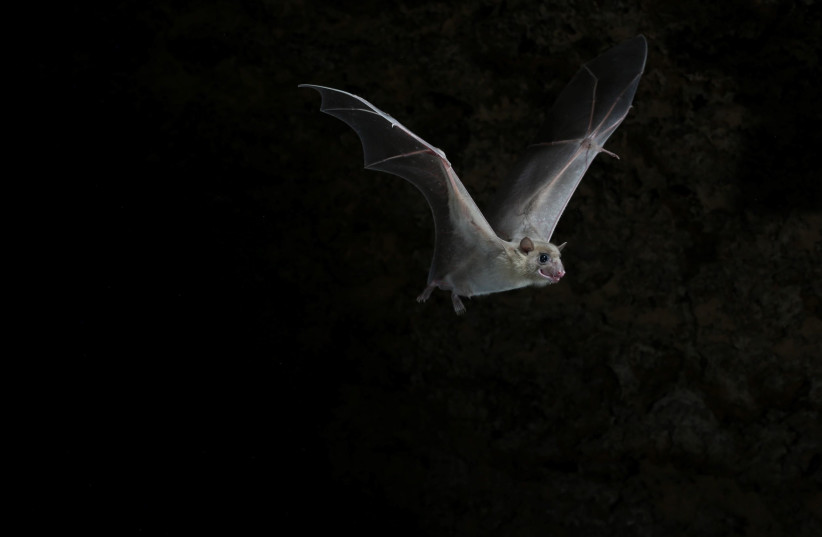Bats have very small eyes but they don’t have sharp or colorful vision – but they are compensated for that their excellent hearing via echolocation – biological sonar that they release to get data about an object’s size and distance from an echo that founds off it. Since they are active at night and asleep during the day, they search for food an interact when it’s dark outside.
But as many bat species can live to ripe old ages (40 years, unlike mice or rats, which have much shorter lives even though they are similar in size), do bats become deaf, like humans? Hearing loss is a hallmark of aging, typically initially affecting the higher frequencies. Now, researchers at Tel Aviv University (TAU) and the University of Maryland have discovered that indeed lose some of their hearing when they are elderly.
Yet the researchers of the study, just published in the journal Life Science Alliance under the title “Bats experience age-related hearing loss (presbycusis),” hypothesized that, because they roost in extremely noisy colonies that would quickly damage the hearing of humans and other mammals, these flying mammals may have evolved some innate ability to limit this age-associated hearing loss.

What are the key aspects of a bat's hearing?
“While high-frequency hearing confers a survival benefit for many animals, it is essential for the survival of echolocating bats, which rely on it for orienting in their environment,” explained Prof. Yossi Yovel, a TAU neuroecologist. “However, to date, no study has systematically examined the effect of age on hearing in bats.”
Doctoral candidate Yifat Tarnovsky from the Yovel lab and colleagues evaluated the age of 47 wild Egyptian fruit bats (Rousettus aegyptiacus) by measuring the accumulation of chemical marks on the animals’ DNA. They then tested the bats’ hearing by monitoring their brains’ electrical responses to sounds of varying pitch and volume. The recordings revealed a clear age-related hearing loss that, just as in humans, was particularly pronounced at higher sound frequencies. Moreover, the rate of hearing loss, about one decibel per year of age, is very similar to the rate observed in aging humans.
Further tests suggest that, similar to humans, bats experience an age-related decline in the structure and function of their cochlea in the inner ear and a slowing down up their auditory nerve processing – known as neuronal presbycusis, which can impair the understanding of speech in humans and could make echolocation more difficult for aged bats.
“The fruit bats that we studied rely on echolocation for various tasks, but they also heavily rely on vision whenever possible,” Tarnovsky said. “It will therefore be important to replicate our tests in bats with poor vision, where echolocation is nearly the only mechanism of orientation.”
One possible contributor to the fruit bats’ hearing loss is their cumulative exposure to high noise levels in their environment. Like many other bat species, Egyptian fruit bats live in large colonies and emit frequent and loud social calls to one another.
The team put several microphones within the fruit bats’ cave and found that the animals are continuously exposed to over 100 decibels of noise, which is roughly equivalent to the noise of a motorcycle or chainsaw. Surprisingly, however, the loudest sounds were at lower frequencies at which the bats show little to no hearing loss in old age.
“When taken together, the very high levels of noise that fruit bats are exposed to and the mild (similar to human) levels of age-related hearing loss suggest that bats might have some special adaptations to cope with their very noisy environments,” Yovel concluded.
Aging is the driving factor of various disorders such as neurodegenerative and cardiovascular diseases, cancer, and metabolic diseases, they wrote. As the proportion of the elderly population increases around the globe, the need to research and develop strategies to promote healthy aging is becoming ever more critical.
The researchers hope that understanding these adaptations could provide insights into the mechanisms of age-related hearing loss in humans.
